By Ali Farkhan Tsani, Senior Editor of MINA News Agency
After the month of Shawwal has passed, we are now entering the beginning of the month of Dzulqa’dah, and then the month of Dzulhijjah (month of sacrifice).
In the month of Dzulhijjah later, there is one main worship, namely qurban, which needs to be prepared from now on.
Sacrifice on Eid al-Adha (10 Dzulhijjah) and Tasyrik days (11, 12, 13 Dzulhijjah) is a major worship performed in the month of Hajj.
Also Read: Sadaqah, A Simple Act with Extraordinary Virtues: Dr. Wahyudi KS
Regarding this sacrifice, it is contained in the Qur’an:
فَصَلِّ لِرَبِّكَ وَانْحَرْ
Meaning: “Establish prayer for your Lord and sacrifice.” (Surah Al-Kautsar/108:2).
This verse is a continuation of the previous verse, which talks about many blessings (al-kautsar).
Also Read: The Dynamics of Living in a Muslim Community in the Modern Era
So, as a manifestation of gratitude for the many blessings, is to perform prayers in this case Eid al-Adha prayers and make sacrifices.
The words “Because of your Lord” indicate that the prayer in general, and especially the Eid prayer, is for the sake of Allah alone. Likewise, make the worship of slaughtering the sacrificial animal only for the sake of Allah.
Don’t be like what the polytheists did in the Jahiliyyah era, where they prostrate to other than Allah, and perform the slaughter also in the name of other than Allah.
In another verse, it is emphasized that our prayers, the slaughter of our qurban, our life and death are only for Allah. As Allah mentions in the verse:
Also Read: The Meaning of “Minal Aidin wal Faizin”
قُلْ إِنَّ صَلَاتِي وَنُسُكِي وَمَحْيَايَ وَمَمَاتِي لِلَّهِ رَبِّ الْعَالَمِينَ (162) لَا شَرِيكَ لَهُ وَبِذَلِكَ أُمِرْتُ وَأَنَا أَوَّلُ الْمُسْلِمِينَ (163)
Meaning: “Say: verily my prayer, my sacrifice (my worship), my life and my death are only for Allah, the Lord of the worlds. He has no partner, and this is what I was commanded to do, and I was the first to surrender (to Allah).” (Surah Al An’am/6:162-163).
So, for those who have the ability to sacrifice on the days of qurban (10, 11, 12, and 13 Dzulhijjah), they should perform qurban for the sake of Allah.
Regarding the shari’a of this sacrifice, it is explained in the hadith:
Also Read: The Atrocities of Zionist Israel During Ramadan
مَنْ كَانَ لَهُ سَعَةٌ وَلَمْ يُضَحِّ فَلاَ يَقْرَبَنَّ مُصَلاَّنَا
Meaning: “Whoever has space (sustenance) and does not sacrifice, then do not approach our prayer place.” (Narrated by Ibn Majah from Abu Hurairah).
Regarding these two things, namely Eid al-Adha prayers and making sacrifices, Shaykhul Islam Ibn Taimiyyah in Majmu’ Fatawa explained that Allah ordered the Prophet sallallaahu ‘Alaihi Wasallam to collect two great acts of worship, namely prayer (Eid al-Adha) and slaughtering qurban.
These two acts of worship show an attitude of taqarrub (self-approach), tawadhu ‘(humility), feeling the need to Allah, husnuzhan (kindness), tasyakur (gratitude), strong belief and calmness in Allah, promises, orders, and virtues.
Also Read: Imaam Yakhsyallah Explains the Interpretation of Quran Surah Asy-Shura Verses 13-15
Ibn Taimiyyah added, The most noble worship of property on Eid al-Adha is the slaughter of a qurban, while the most important bodily worship is the Eid al-Adha prayer.
That’s how it is, then from making qurban can increase piety, because it is stated that what is expected by the person who sacrifices is not flesh or blood that flows after the slaughter.
However, the most important of the sacrifices is piety and sincerity.
As Allah mentions in the verse:
Also Read: Imaam Yakhsyallah Mansur: Mosques Play a Central Role During Ramadhan
لَنْ يَنَالَ اللَّهَ لُحُومُهَا وَلَا دِمَاؤُهَا وَلَكِنْ يَنَالُهُ التَّقْوَى مِنْكُمْ
Meaning: “The camel’s flesh and blood never reach (the pleasure of) Allah, but it is your piety that can achieve it.” (Surah Al-Hajj/22:37).
So, by making sacrifices, it will increase our gratitude to Allah, and Allah will also increase our sustenance for our gratitude. God willing.
Thus, may Allah give us the ability to perform Eid al-Adha prayers and sacrifices this year, because of Allah. Amen. (T/RE1 )
Also Read: Enter Ramadan with a Heart Free of Envy and Hatred: Imaam Yakhsyallah
Mi’raj News Agency (MINA)






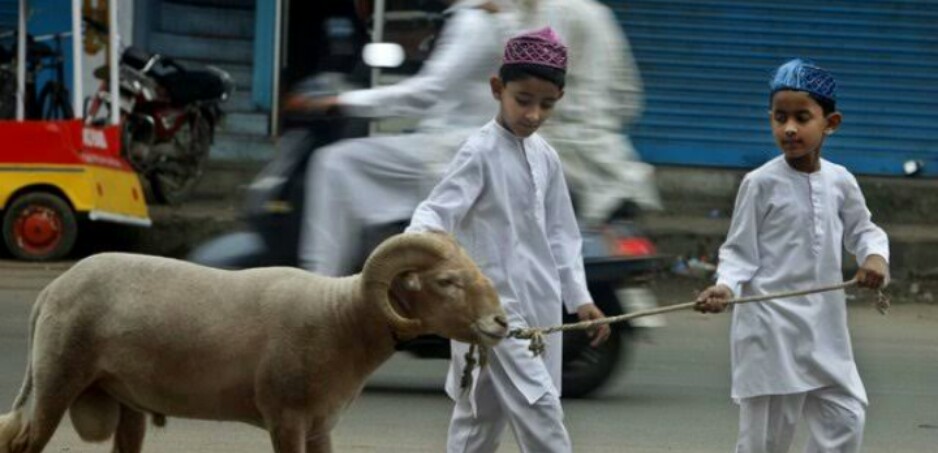

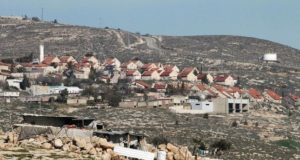
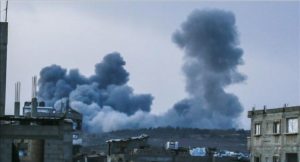

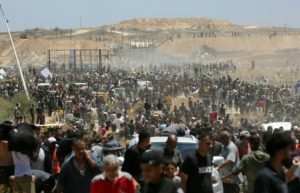
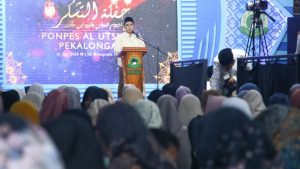

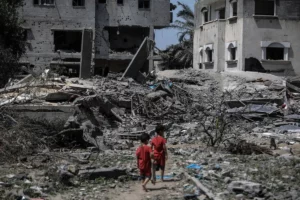
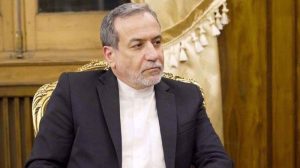
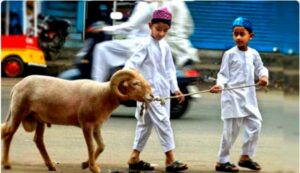
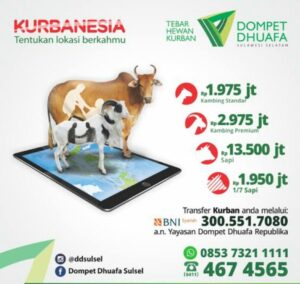
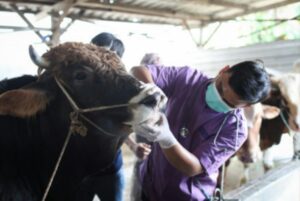
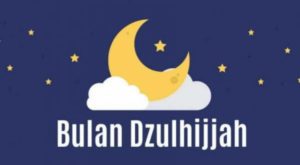
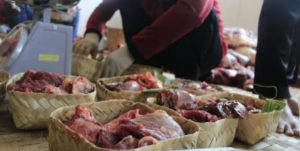
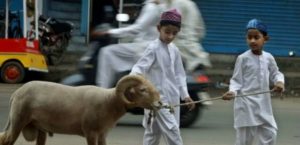



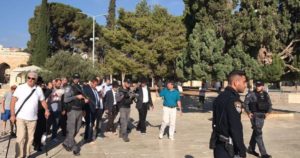

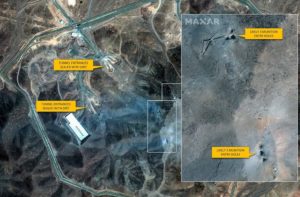
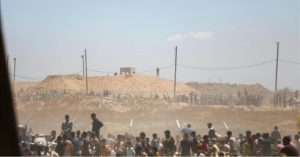
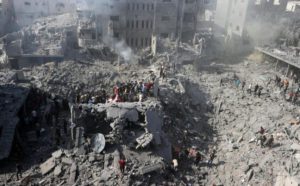






 Mina Indonesia
Mina Indonesia Mina Arabic
Mina Arabic